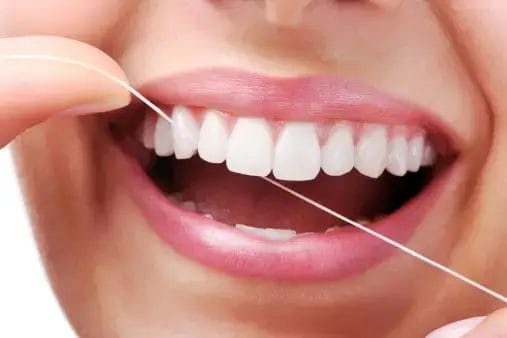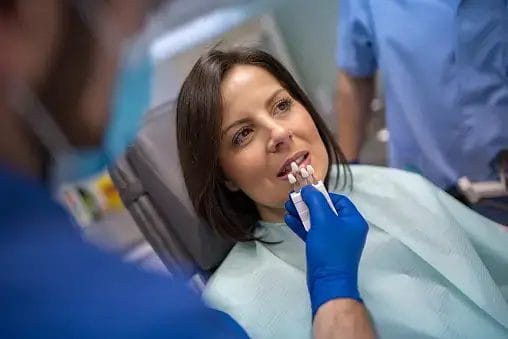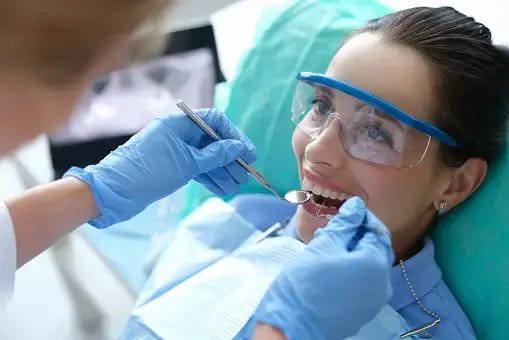Cosmetic Dentist
All Services

When considering cosmetic dentistry, it's important for individuals to have realistic expectations and to consult with a qualified cosmetic dentist. A consultation allows the dentist to assess the individual's oral health, discuss their goals, and recommend appropriate treatments.
Choosing a cosmetic dentist with experience, proper training, and a portfolio of previous cases can help ensure that the desired cosmetic improvements are achieved with a focus on both aesthetics and oral health.
Why Us
It seems like your question might be truncated or incomplete. If you’re asking about the significance of consulting a cosmetic dentist, or why someone might choose to see a cosmetic dentist, here are some reasons:
-
Aesthetic Improvements: Cosmetic dentists specialize in procedures that enhance the aesthetic appearance of the teeth and smile. Whether it’s teeth whitening, veneers, or other cosmetic treatments, the goal is to improve the overall look of the teeth.
-
Personalized Treatment Plans: Cosmetic dentists work with patients to create personalized treatment plans based on their individual needs and goals. They consider factors such as facial features, skin tone, and the patient’s vision for their ideal smile.
-
Advanced Technology: Cosmetic dentistry often incorporates advanced technologies to achieve precise and natural-looking results. This can include digital imaging, 3D scanning, and computer-aided design and manufacturing (CAD/CAM) for restorations.
-
Comprehensive Smile Makeovers: Cosmetic dentists can provide comprehensive smile makeovers, addressing multiple cosmetic issues to achieve a harmonious and balanced appearance. This may involve a combination of different treatments tailored to the patient’s needs.
-
Improved Confidence and Self-Esteem: Enhancing the appearance of the smile can have a positive impact on an individual’s confidence and self-esteem. Feeling good about one’s smile can contribute to a more positive self-image.
-
Minimally Invasive Procedures: Many cosmetic dental procedures are minimally invasive, preserving as much natural tooth structure as possible while achieving desired cosmetic improvements.
-
Functional and Aesthetic Benefits: Some cosmetic procedures, such as dental crowns or veneers, not only enhance the appearance of the teeth but also provide functional benefits, such as improved strength and durability.
-
Correcting Dental Issues: Cosmetic dentistry can address various dental issues, including stained or discolored teeth, misalignment, gaps, and irregularities in tooth shape and size.
-
Customized Solutions for Each Patient: Cosmetic dentists understand that each patient is unique, and they tailor their approach to provide customized solutions that align with the patient’s preferences and expectations.
-
Continued Education and Training: Cosmetic dentists often participate in ongoing education and training to stay updated on the latest techniques, materials, and technologies in the field of cosmetic dentistry.
It’s important to note that while cosmetic dentistry primarily focuses on the aesthetics of the smile, it is essential to maintain good oral health. A comprehensive approach to dental care involves a combination of cosmetic and restorative procedures to ensure a healthy, functional, and beautiful smile. If you are considering cosmetic dentistry, consulting with a qualified cosmetic dentist allows you to discuss your goals and explore the most suitable options for your individual case.
FAQ
What is cosmetic surgery?
In general, it is recommended to have a professional teeth cleaning every six months. However, the frequency may vary based on individual oral health needs. Your dentist or dental hygienist will provide guidance on the ideal schedule for your specific situation.
What are the common cosmetic procedures?
Teeth cleaning is typically not painful. During the cleaning, you may feel some pressure and scraping as the dental professional removes plaque and tartar. If you experience discomfort, it’s essential to communicate with the dental team, as they can make adjustments to ensure your comfort.
How do I choose the right cosmetic procedure for me?
It’s generally recommended not to eat a heavy meal before a dental cleaning, as the process involves various tools and instruments in your mouth. However, having a light meal should not pose a problem. Drinking water is usually fine.
Are cosmetic procedures only for women?
The duration of a teeth cleaning appointment can vary depending on factors such as the extent of plaque and tartar buildup, the thoroughness of the cleaning, and any additional treatments needed. On average, a routine cleaning appointment may take 30 minutes to an hour.
What is the recovery time for cosmetic procedures?
X-rays are not always taken during a routine cleaning, but your dentist may recommend them periodically to assess the health of your teeth and identify any issues not visible during the clinical examination.
Are cosmetic procedures safe?
Professional teeth cleaning can help remove surface stains from your teeth through the polishing process. However, for deeper stains, additional whitening treatments may be recommended.
How long do the results of cosmetic procedures last?
Many dental insurance plans cover routine teeth cleaning as a preventive measure. However, coverage may vary, so it’s essential to check with your insurance provider to understand the details of your plan.
Can I finance cosmetic procedures?
It’s a good practice to maintain your regular oral hygiene routine, but avoid aggressive brushing right before your appointment, as it may cause gum irritation. Your dental professional can better assess your oral health if you’ve maintained your usual routine.
What is the difference between Botox and dermal fillers?
To maintain good oral hygiene, brush your teeth twice a day, floss daily, use an antiseptic mouthwash if recommended by your dentist, and follow a balanced diet low in sugary foods and drinks.




